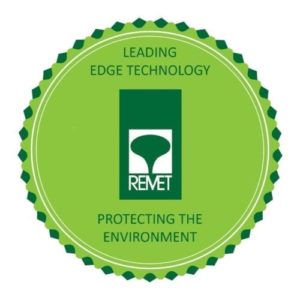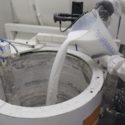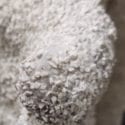REMASIL® 60 RG 100: Zircon Replacement
Remet Succesfully Implement Alumina Silicate as Replacement for Zircon in Turbowheel Manufacturer
Over the last few years the cost of zircon has doubled, and in the longer term it is set to remain high. Surprisingly, the cost of zircon sand has increased disproportionately to the price of flour. A major European manufacturer of Turbocharger wheels challenged Remet to find a cost stable alternative to zircon with zero penalty in terms of efficacy and efficiency of process.
Remet rose to this challenge and initially performed a risk/benefit analysis where the major risk factors attributed the change from zircon flour as potentially having the greatest effect on product quality and also having the greatest exit barrier from the point of view of process risk during a change procedure. The same was not true when the case of zircon sand replacement was examined. In fact, zircon sand exhibited low risk for both part and process substitution.
Remet has developed an aluminosilicate stucco, named REMASIL 60 RG100, particularly with the aim of replacing unnecessary zircon usage. REMASIL 60 RG100 has a carefully selected particle size and shape such that it is similar to zircon sands typically used in the process. In fact, it is slightly larger: this is because REMASIL has only half the density of zircon, and to ensure that it has a similar impact energy on striking the pattern in rainsanding, a marginally larger particle size is required. The material was tested over a trial batch of 10,000 wheels.
Results
Under Remet’s technical direction the material was swapped in direct exchange for the zircon sand. No changes were made to the process.
The customer paid tribute to the Remet Team citing the following findings:
- Volume consumption stayed approximately the same as zircon, however as zircon is nearly twice as dense as REMASIL, the mass dropped by 40% approximately. Bearing in mind that REMASIL was offered at less than half the price of zircon, REMASIL was found to have operating costs of less than a quarter of the original zircon sand system.
Cost of operating old system: GBP 87,500 per annum
Cost of operating REMASIL System GBP 29,000 per annum
Net Favourable effect of REMASIL: GBP 58,500 per annum
- A massive increase in permeability, which dramatically reduced the incidence of cold-shut and misrun, previously the foundry’s biggest source of scrap. The scrap figure fell by over 50% from a total of 5.1% to 2.2%. This foundry produces approximately 250,000 wheels per month at an average cost of around GBP 5.00 selling price per part:
Monthly cost of Scrap (Old System) 250,000 x 5 x 0.051 = GBP 63,750
Monthly cost of Scrap (REMASIL 60 RG100) 250,000 x 5 x 0.022= GBP 27,500
Net Annual gain in using REMASIL 60 RG100 = GBP 435,000
- Shell removal time was reduced by on average 6 seconds per wheel which increased machine capacities by some 416 hours per annum. In other words an extra machine capacity of 17 working days was added, or operating costs avoided, taking the other view.
- The customer and end user were unable to distinguish between REMASIL wheels and zircon wheels during metallographic inspection.
Recognised a net positive impact of around GBP 500,000 in the first year of utilisation
The client adopted REMASIL 60 RG100 immediately after initial qualification and continues to work closely with Remet to further enhance their process, and since initial roll-out, mis-run scrap has again been halved further improving the efficiency and effectiveness of this world-leading foundry.
To consult with your Remet Technical Sales Manager contact us.
< Back to case studies



